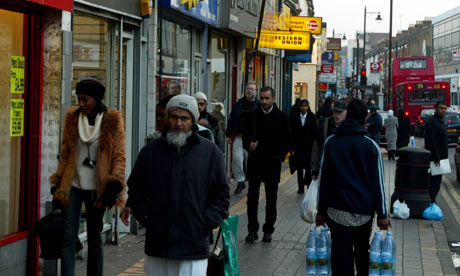A city environment is so different to the relatively countrified living I experience in Bishops Stortford.
The trees, fields, and the farms are within a stones throw of my house and one is continually in touch with nature in your normal day.
Not so the city life. Pavements, buildings, back to back housing, streets carpeted with cars and pedestrians negotiating their way through the throng. The market is open, the traders shout their produce as the women shuffle in to purchase what ever. There is always noise. The buses, cars and lorries all competing for a patch of space, the continuous pressure of finding parking and the frustration of the traffic jam contribute to a constant buzz, a mental contest in which there are no winners.
The street outside the pub is hosed down after the shenanigans of last night the broken glass swept up as a different clientele takes over.
People live an artificial life at the best of times but city life is artificiality squared. It turns people into pygmies, it shrivels and dehumanises as they drag their tired bodies from pillar to post, from fast food counter to the betting shop.
Of course there are two cities. The City of London has within its boundaries many Theatres, Clubs, Expensive Shopping outlets plus the iconic sights of The Establishment to attract those who can afford to live there and who increasingly, do not have English as a first language.
The other city was always off-piste and clouded by poverty. A 'holding stable' for undernourished people both educationally and culturally who were not of the kind the other 'city' rubbed shoulders with but who were essential to do the work they did not wish to dirty our hands with.
The people who live there in East London, have changed in character. From the strong social structure which the nursery rhyme of those who lived within the sound of Bow Bells were known, The Cockneys, now can only be described as 'multicultural' with little in common with their predecessors.
The call to prayer has superseded the early morning market trader and the distinguishing mark is now more Eastern than Anglo.

No comments:
Post a Comment